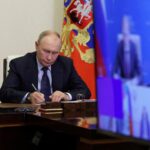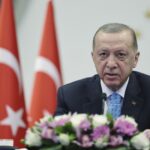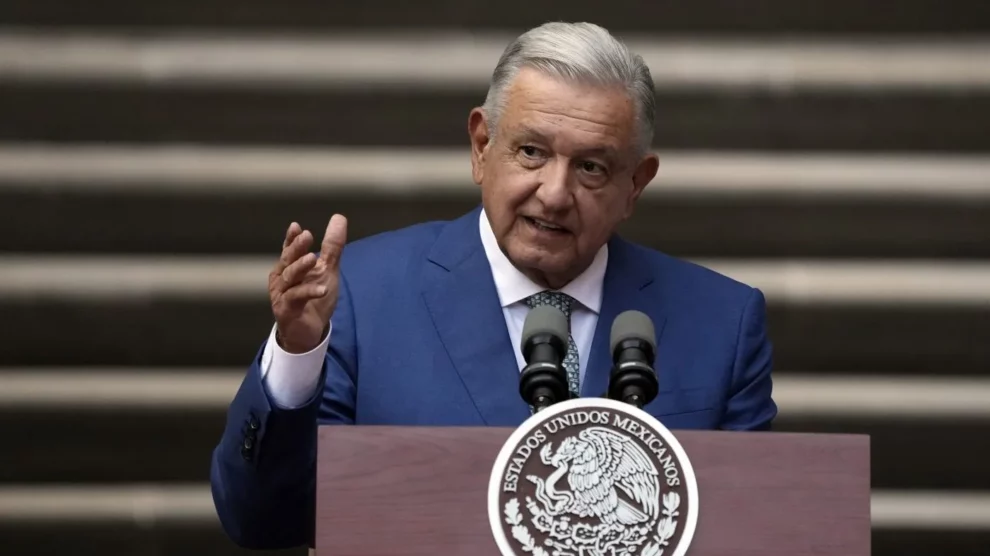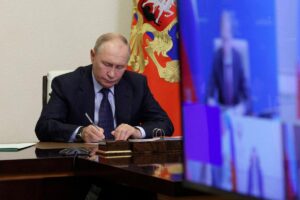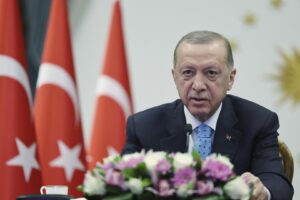Mexican President Andrés Manuel López Obrador on Monday went on the offensive against U.S. immigration policy, blaming sanctions against countries such as Cuba and Venezuela for the rise in regional migration.
At his daily press conference Monday, López Obrador drew a direct line between U.S. foreign policy in Latin America and 10,000 daily arrivals at the U.S.-Mexico border.
He commented on a car accident where Cuban migrants were killed in the southern state of Chiapas, using it as a segue into a critique of U.S. sanctions.
“That’s why we’re going to keep insisting on addressing the root causes of migration, the origins, go deep, stop politicking, thinking rights are above ideology, that sanctions cannot be maintained — blockades — and that the poorest countries have to be helped.
Over the past week, López Obrador has been busy setting the table to receive Secretary of State Antony Blinken, Attorney General Merrick Garland, Homeland Security Secretary Alejandro Mayorkas, and Homeland Security adviser Elizabeth Sherwood-Randall.
That visit, focused on migration and security issues, follows a reciprocal one focused on trade, where Blinken, Commerce Secretary Gina Raimondo and U.S. Trade Representative Katherine Tai hosted Mexican Foreign Secretary Alicia Bárcena and Secretary of the Economy Raquel Buenrostro in Washington.
Rhetorically, López Obrador has lashed out over sanctions and negatively compared Ukraine aid to U.S. efforts to curtail root causes of migration in the Western Hemisphere.
On Monday, he noted in his press conference, which goes on for around three hours daily, that the short-term budget approved by Congress over the weekend cut aid to Ukraine.
“But how much have they destined to the war in Ukraine, $30 [billion] or $50 billion for the war, which is the most irrational thing there can be, and harmful,” he said.
López Obrador has avoided directly taking sides in Russia’s invasion of Ukraine but has raised eyebrows with his openings toward Russia — in September, Mexico’s annual independence day military parade included a Russian cohort. The yearly parade traditionally includes foreign military detachments as guests, but rarely those of countries actively involved in a shooting war.
While López Obrador has prodded the United States ahead of the high-level visit, he’s also made moves to appease U.S. concerns about Mexican cooperation on drugs and migration.
Most significantly, the Mexican military made a show of force over the weekend in Badiraguato, Sinaloa, the remote mountain hometown of imprisoned drug kingpin Joaquín “El Chapo” Guzmán, the former head of the Sinaloa Cartel.
Tuesday’s press conference opened with General Luis Rodríguez Bucio — a key player in internal security — touting the extradition of eight high-level targets to the United States.
The United States has been amping up pressure on Mexico to extradite cartel kingpins and do more to suppress the fentanyl trade, most of which has been controlled by the Sinaloa Cartel and the Cartel de Jalisco Nueva Generación, two rival organizations.
Last month, Mexico extradited Ovidio Guzmán, the youngest of El Chapo’s four sons known as “los Chapitos,” who control a key faction of the Sinaloa Cartel.
The Sinaloa Cartel has also seemingly taken U.S. threats to put a squeeze on Mexico seriously. For weeks reports have trickled out of a cartel ban on fentanyl production, and on Monday, banners were hung throughout Sinaloa threatening cartel action against fentanyl producers.
Source: The Hill

